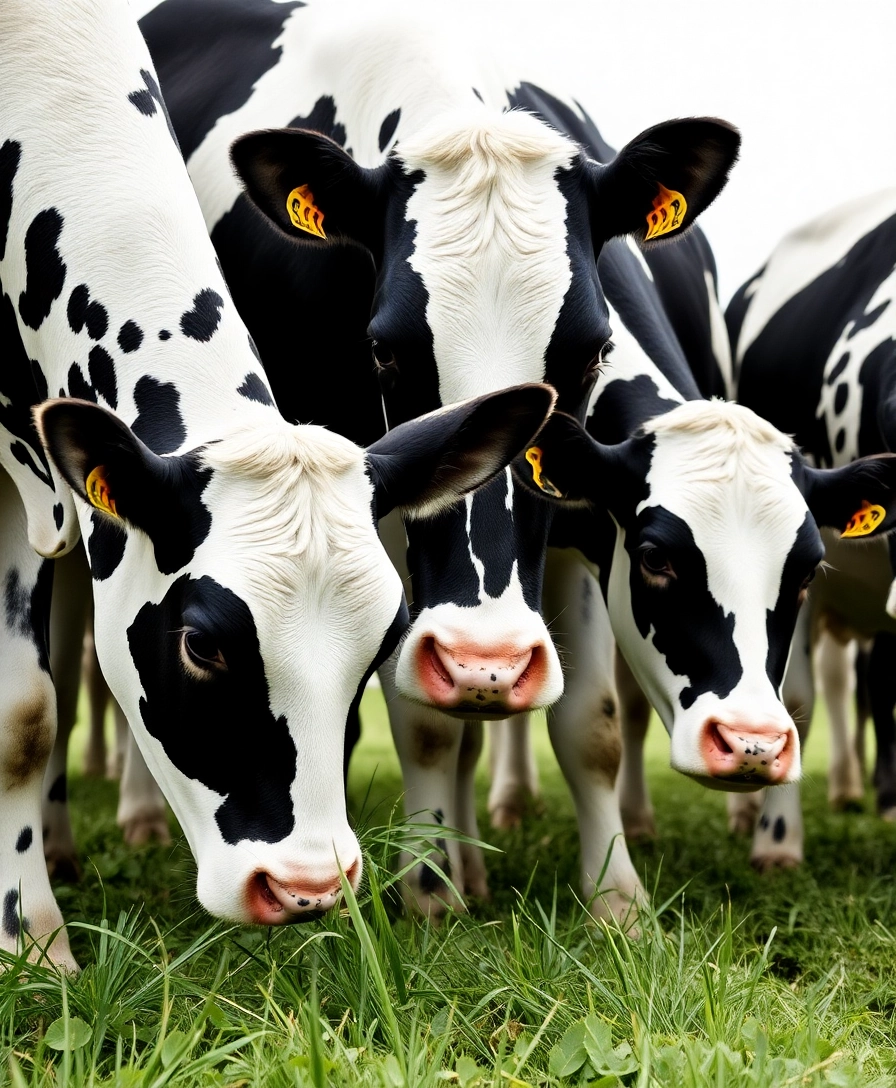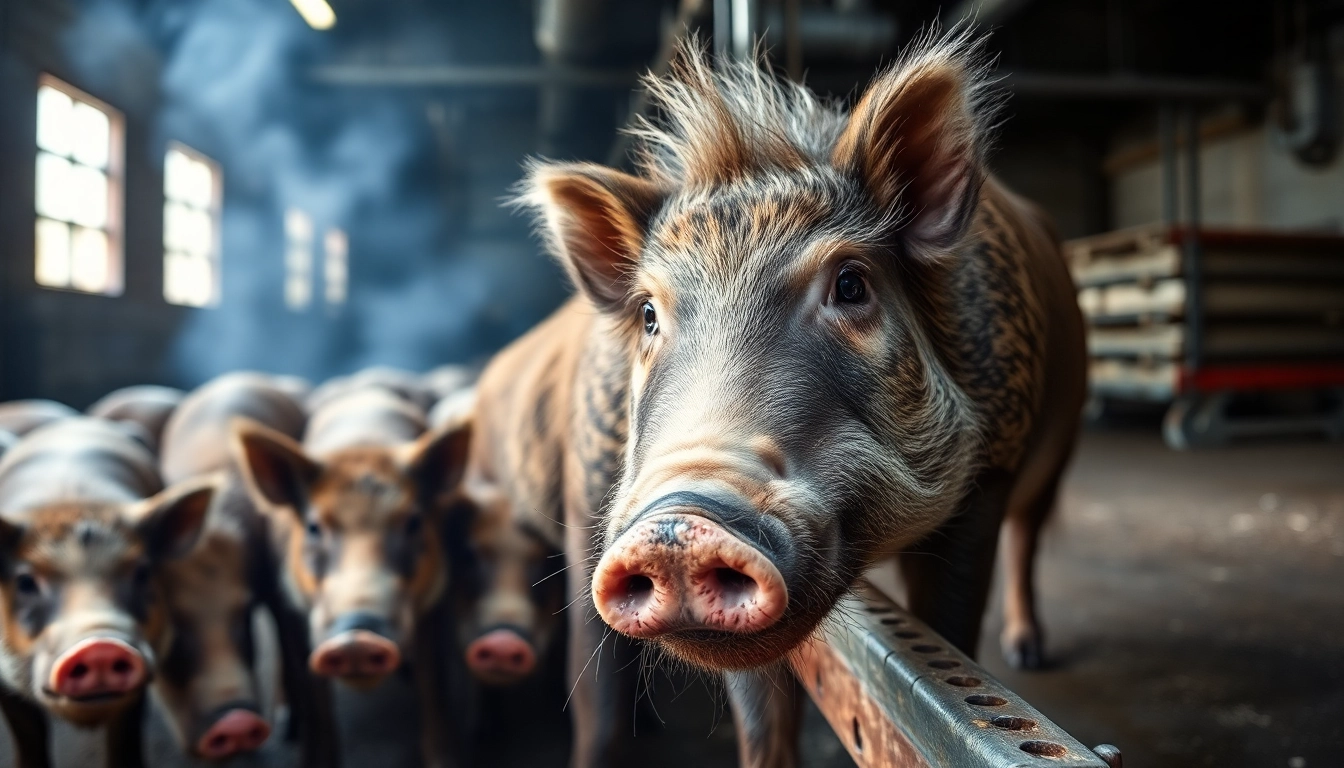Embracing the Future: The Agriculture Pathology Institute's Commitment to Sustainability
The Agriculture Pathology Institute stands at the forefront of sustainable farming innovation. Recognizing the urgent need to reduce operational costs while protecting the environment, the Institute has integrated new technologies into its farming practices. From electric tractors supplied by industry leaders like CAT and John Deere to the adoption of wind turbines for farming, the Institute is pioneering a model of smart farming that balances productivity with ecological responsibility.
This strategic move not only aligns with global efforts to mitigate climate change but also ensures farms operate with minimal costs and environmental impact. The Institute's approach exemplifies how agricultural organizations can leverage renewable energy sources and cutting-edge machinery to redefine modern farming practices, paving the way for a progressive future rooted in sustainability.
Smart Farming: A New Paradigm in Agriculture
Smart farming involves deploying advanced technologies and data-driven solutions to optimize agricultural production and yield. It encompasses sensor networks, automated machinery, and precise resource management, transforming traditional farming into an intelligent and efficient operation. For the Agriculture Pathology Institute, integrating smart farming practices means embracing innovations such as electric tractors, LED grow lights, and wind turbines for farming.
This new paradigm encourages the efficient use of resources, reducing waste and lowering costs while improving yield and quality. By carefully monitoring environmental conditions and machinery performance, farmers can make informed decisions that maximize productivity. Consequently, smart farming not only enhances profitability but also secures a more sustainable and resilient agricultural ecosystem.
The Electric Tractor Revolution: Powering Farms Sustainably
Electric tractors represent a pivotal shift in farm machinery, replacing traditional diesel engines with battery-powered systems. The Agriculture Pathology Institute has incorporated electric tractors from CAT and John Deere into its farm operations, emphasizing zero emissions and lower operating costs. These tractors utilize lithium-ion battery technology, which provides rapid charging, a long lifespan, and high performance.
In addition to environmental benefits, electric tractors significantly reduce noise, heat, and vibration on farms. This creates a safer and more comfortable working environment for farmworkers, while also enhancing operational efficiency. As battery technology advances and charging infrastructure improves, electric tractors are poised to become the standard for sustainable farming worldwide, aligning with the Institute's vision of a greener future.
Harnessing Wind Energy: Wind Turbines for Farming Excellence
A key component of the Institute's sustainable strategy is the deployment of wind turbines for farming. Investing in wind turbines allows farms to generate passive income through land leasing agreements or to power their operations independently. When paired with electric tractors, wind turbines can provide a renewable, cost-effective power source for charging machinery and operating other farm equipment.
Moreover, farms equipped with wind energy can achieve a high degree of energy independence, reducing reliance on grid electricity. This self-sufficiency minimizes operational vulnerabilities related to power outages or price fluctuations. Integrating wind turbines with other renewable solutions positions the Agriculture Pathology Institute at the forefront of eco-friendly farming, demonstrating the tangible benefits of renewable energy in agriculture.
The Transition to LED Grow Lights: Enhancing Indoor Farming Efficiency
Switching to LED grow lights is transforming indoor and controlled environment farming at the Institute. Compared to traditional high-pressure sodium (HPS) lights, LEDs use up to 75% less electricity, resulting in substantial energy bill savings. Additionally, LEDs produce significantly less heat, decreasing cooling requirements and associated costs.
Beyond energy savings, LED grow lights enhance plant health and yield by providing optimized light spectrums tailored to specific crops. Their longer lifespan reduces maintenance costs and minimizes disruptions in production cycles. For farms aiming for sustainable growth, integrating LED grow lights exemplifies how innovative lighting solutions can drive efficiency and profitability.
Combining Green Technologies for Maximum Impact
The true power of sustainable farming lies in the synergistic combination of various green technologies. For instance, by integrating wind turbines for farming with electric tractors and LED grow lights, farms can achieve a near-zero energy footprint. This comprehensive approach can significantly reduce operational costs and increase productivity, resulting in a resilient business model that withstands market and climate fluctuations.
In practice, wind turbines for farming generate clean energy that charges electric tractors used for fieldwork, while LED grow lights optimize indoor crop yields with minimal energy consumption. The Institute's commitment to this integrated model underscores the potential for a future where farms are not only profitable but also environmentally responsible. These innovations foster a sustainable cycle, benefiting farmers, consumers, and the planet.
Cost Savings and Environmental Benefits: A Win-Win Scenario
Implementing renewable energy solutions and electric machinery yields immediate financial benefits. For example, electric tractors exclude fuel costs, which can save thousands of dollars annually per machine. Additionally, switching to LED grow lights drastically reduces electricity consumption, resulting in significant savings on energy bills, often exceeding $250 per light per year.
These practices contribute to a healthier environment. Zero-emission electric tractors and wind turbines reduce greenhouse gas emissions, supporting global climate goals. The reduction of atmospheric pollutants and the decrease in heat and noise pollution enhance the farm's ecological footprint. As a result, the Institute demonstrates that sustainable farming practices can be economically advantageous while promoting environmental stewardship.
Future Innovations: Advancing Autonomous Farming Solutions
The Agriculture Pathology Institute recognizes that innovation does not stop here. Both CAT and John Deere are developing autonomous electric tractors designed for precise, hands-free farming operations. These autonomous units can be integrated seamlessly with existing renewable energy sources, further boosting efficiency and reducing labor demands.
As these autonomous solutions mature, they will enable farms to operate more accurately and consistently. Combined with data analytics and IoT connectivity, autonomous electric tractors will revolutionize the concept of smart farming, enabling farms to achieve new levels of productivity and sustainability. The Institute remains committed to exploring these technologies, ensuring it remains at the cutting edge of agricultural innovation.
The Role of Education and Policy in Accelerating Sustainable Farming
A vital aspect of fostering sustainable farming practices is education, as well as supportive policies. The Institute aims to raise awareness about the benefits of switching to LED grow lights, adopting electric tractors, and implementing wind turbines for agricultural purposes through workshops, partnerships, and outreach programs. Educating farmers about the long-term financial and environmental benefits encourages wider adoption of these technologies.
Government incentives and subsidies for renewable energy projects and electric machinery can accelerate the transition towards sustainable farming. Policies that support research, development, and infrastructure improvements are instrumental in scaling these innovations globally. The Institute aims to catalyze positive change, inspiring the agricultural community to embrace sustainable practices.
Building a Sustainable Future: The Road Ahead
The Agriculture Pathology Institute envisions a future where all farms operate with renewable energy, electric machinery, and intelligent systems. The combination of wind turbines for farming, switching to LED grow lights, and adopting electric tractors exemplifies this vision. This integrated approach not only reduces costs and environmental impacts but also opens new revenue streams, such as energy leasing and surplus power sales.
The Institute's pioneering efforts demonstrate that sustainable farming is more than just a trend—it's a necessity for long-term food security and environmental health. As technology advances, farms will become increasingly autonomous, energy-efficient, and resilient. Ultimately, the Institute's leadership in sustainable innovations invites the entire agricultural sector to participate in shaping a greener, smarter future.
The Agriculture Pathology Institute exemplifies how embracing advanced technologies—such as electric tractors, wind turbines for farming, and switching to LED grow lights—can transform agriculture into a more sustainable and profitable enterprise. By integrating renewable energy sources with innovative machinery, farms can significantly reduce operating costs while safeguarding the environment. This holistic approach paves the way for smart farming that prioritizes resilience, efficiency, and sustainability for future generations.
References and further reading are embedded within the content, emphasizing real-world case studies, industry advancements, and the potential of renewable energy and electric solutions to redefine modern agriculture.













